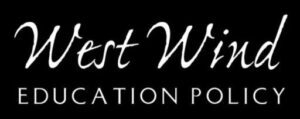 I recently observed a conference room full of superintendents sitting in complete silence as they pondered a challenging question, “Should teachers be required to participate in professional learning?” Richard Elmore posed this question, and after what seemed like an uncomfortable amount of wait-time, a superintendent responded in an uncertain voice, “Yes.” The audience was engaged in learning how to improve student learning through the implementation of the Instructional Rounds approach and Elmore was pressing them to think about how to advance reforms that are likely to make a difference in improving student learning.
I recently observed a conference room full of superintendents sitting in complete silence as they pondered a challenging question, “Should teachers be required to participate in professional learning?” Richard Elmore posed this question, and after what seemed like an uncomfortable amount of wait-time, a superintendent responded in an uncertain voice, “Yes.” The audience was engaged in learning how to improve student learning through the implementation of the Instructional Rounds approach and Elmore was pressing them to think about how to advance reforms that are likely to make a difference in improving student learning.
Why should this question be so difficult for district-level school leaders to answer? Could it be that the superintendents were uncertain about their own beliefs about professional learning and unsure about policies pertaining to professional learning in their districts? It could be that administrators are not clear about requiring professional development (PD) because teachers may be resistant to engaging in PD, because they have had mixed experiences with the professional learning they have received in the past. It is possible that these school leaders do not want the added administrative burden of ensuring that PD is of high quality or to monitor teacher participation in professional growth. Perhaps, they may not have personally experienced worthwhile professional learning as an educator and don’t expect much from PD. Most likely, they think that PD should be optional, because they hold the assumption that teachers are adults and they will choose to engage in what they need to learn. I have heard some leaders of PD suggest that professional learning teams and other collective professional development opportunities should not include teachers who don’t want to be there because they have negative impact on the culture of the learning experiences. Does this suggest that it is acceptable for some teachers to not learn about district and school priorities?
Currently, evaluation processes and the expectations that states and local districts ratchet up evaluation systems is getting a lot of attention. There appears to be building political activity around a theory of action that new evaluation systems that identify teachers’ strengths and weaknesses, then weak teachers can be removed. The theory suggests that the remaining teachers will be motivated by the added accountability to work harder and teach better, and professional learning will be targeted to address what teachers aren’t good at. According to this theory, these strategies will ultimately result in increased student achievement. Given this theory of action, wouldn’t the causal relationships that connect the evaluation to the goal of improved student learning necessitate that professional learning be required of all teachers?
There are policies on the books that should make the decision about requiring professional learning more clear-cut. The superintendents I observed are from Iowa, a state that has teaching standards that include a professional development standard and the requirement that each teacher have an individual professional development plan. Other individual state policies include state PD standards, guidelines for PD, requirements for professional growth for license renewal, and requirements that each teacher have an individual professional development plan, etc. See Teacher Professional Learning in the United States: Case studies of state Policies and Strategies (Learning Forward, 201) for examples of selected states’ policies. Additionally, many states have or are in the process of adopting or adapting the InTASC Model Core Teaching Standards. The InTASC standards require professional learning – see Standard #9: Professional Learning and Ethical Practice.
The teacher engages in ongoing professional learning and uses evidence to continually evaluate his/her practice, particularly the effects of his/her choices and actions on others (learners, families, other professionals, and the community), and adapts practice to meet the needs of each learner.
Policies should be clear that participating in professional learning on the part of teachers should be required. This then begs the question, how will district leaders evaluate participation in professional learning? It would be an easy task to consider attendance, but if policies are placing high stakes on teacher evaluation systems to inform professional development planning, wouldn’t it be logical to measure levels of engagement and whether teachers are implementing what they learn in professional development in their classrooms? A robust set of processes to fully evaluate professional learning seems reasonable when so much emphasis is being placed on accountability for the purposes of improving teacher learning in the work place. Findings from these evaluations may inform the conversation what teachers are learning (or not learning), and which newly learned practices teachers are implementing (or not implementing). This conversation might shift the focus about why students are not learning as intended away from identifying weak individual teachers to a discussion about how to improve the system of learning for teachers. Knowing about the quality of professional learning might make school leaders confident that it should be required.
